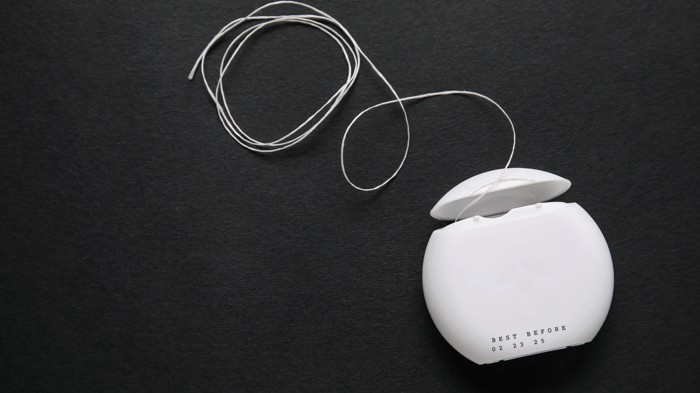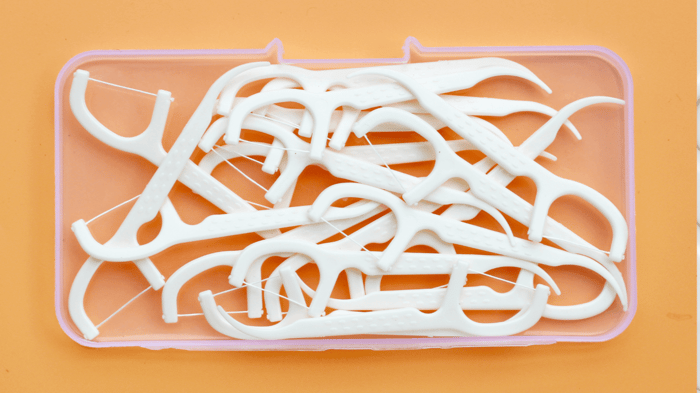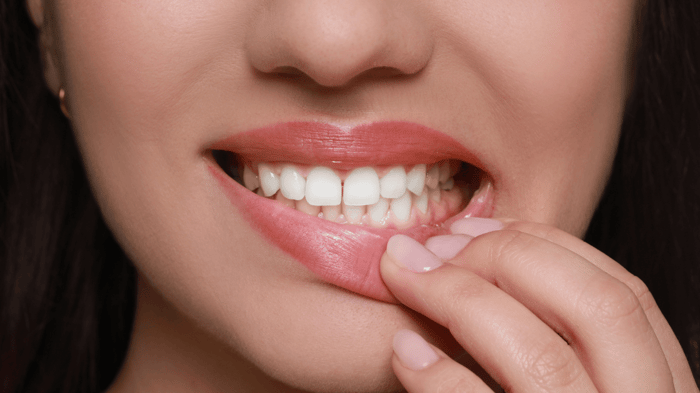Let’s be real - we all want some good oral, right?! Well, in this post, we’re going to give you an overview on how to ensure your oral health stays at the top of its game so you won't need to know about Periodontal Disease treatment!
We all know that prevention is one of the best ways to keep your oral health in good standing and today’s Daily Flaus session is all about spotting Periodontal disease early and how you can help your gums stay away from needing Periodontal Disease treatment with early detection!
Obviously flossing (Flausing if you’ve joined our flossing revolution!) and brushing are two great ways to keep your mouth the happiest, but sometimes even that isn’t enough to stop gum disease.
We'll explore the ins and outs of periodontal disease, from its causes and symptoms to the importance of early detection and treatment. So, sit tight, relax those cheeky smiles, and let's dive right into this dental adventure!
What is Periodontal Disease?
Picture this: a battleground where your gums engage in a high-stakes wrestling match against harmful bacteria. When the balance is tipped, and the bacteria gets the upper head, it can lead to Periodontal disease (also known as gum disease).
Periodontal disease is a chronic bacterial infection that affects the gums and supporting structures of the teeth. It can lead to gum inflammation, tooth loss, and other oral health complications if left untreated.
But don’t fret yet! By understanding the ins and outs of Periodontal disease, you can conquer it with smiles on your faces (and Flaus’ in hand).
Causes of Periodontal Disease
So we scared you with the ‘tooth loss’ comment and now you really want to know the cause, right?
We know - we scared ourselves too!
The causes of periodontal disease are as varied as a buffet menu. Some of the common causes include plaque buildup (let’s start Flausing, friends!), poor oral hygiene, genetics, and even aging can contribute to the development of Periodontal disease.
We also know that hormonal changes, certain medications, and lifestyle choices like smoking can also mean some no-fun-times for your gums and contribute to the cause of Periodontal disease.
Common Signs and Symptoms of Periodontal Disease
Signs and symptoms of periodontal disease can vary depending on the stage and severity of the condition. Here are some common indicators to watch out for:
Gum inflammation: Red, swollen, or tender gums can be an early sign of periodontal disease. Healthy gums should be pink and firm, not puffy or sensitive (or white).
Bleeding gums: Gums that bleed easily, especially during brushing, flossing, Flausing or eating, may also be a sign of trouble.
Bad breath: Feel like you can’t get rid of your bad breath? This is also another sign of Periodontal disease.
Receding gumline: As gum disease progresses, the gum tissue may start to pull away from the teeth, exposing more of the tooth's surface, making teeth appear longer than usual.
In advanced cases, periodontal disease can also cause teeth to become loose (read more about that in our blog post on gum pockets here). You may also experience symptoms such as pus between teeth and gums, changes in bite or tooth alignment or painful mouth sores or ulcers.
It's important to remember that the signs and symptoms of periodontal disease can vary from person to person. If you notice any of these indicators or have concerns about your gum health, it's recommended to consult with a dental professional.
Importance of Early Detection
We've arrived at the heart of our adventure: the importance of early detection.
Detecting periodontal disease early is crucial as it means you can help stop the disease from progressing and causing further damage. Early detection enables more conservative treatment options, which are often less invasive and more cost-effective (we want to avoid those big dental bills as much as you do)! By addressing periodontal disease in its initial stages, individuals can preserve their oral health, avoid potential tooth loss, and maintain a healthy smile for the long term.
Periodontal Disease Treatment at Home
While it's essential to consult with a dental professional for a comprehensive treatment plan, there are several steps you can do on your own to help treat periodontal disease at home:
- Maintain a consistent oral hygiene routine:
- Brush your teeth at least twice a day with a soft-bristle toothbrush (make sure you’re using some proper brushing techniques!)
- Floss daily (we’re clearly big fans of that) and make sure that you’re using the C-Shape method to floss. If you don’t love flossing, we can help with our time-saving + gum massaging electric flosser, Flaus!
- Use an antimicrobial mouthwash to reduce bacteria
- Lifestyle habits
- Are you a smoker? Smoking weakens the immune system and reduces the effectiveness of gum disease treatments
- What you’re heating helps too! Maintaining a healthy diet and avoiding sugary snacks and beverages, help as well as they contribute to plaque formation.
- Keep your stress levels down! Engage in stress-reducing activities like exercise, meditation, as stress has been linked to oral health
- Stay hydrated! Drink plenty of water throughout the day to keep your mouth hydrated and promote saliva production, which helps wash away bacteria and food particles.
Surgical Treatment for Periodontal Disease/Treatment Cost
If you’ve consulted a dental professional and they recommend a medical approach to Periodontal disease, you may be suggested surgical treatments.
Surgical treatments for periodontal disease are procedures performed by a periodontist or oral surgeon to address advanced stages of gum disease that cannot be effectively treated with non-surgical methods alone. These surgical procedures can include Flap Surgery (or Pocket Reduction Surgery), Soft Tissue Grafts and Bone Grafting.
Conclusion
While we’re big fans of our dentist, we also would love to see them at our regular checkups and not for Periodontal disease. Therefore, we’d highly advise taking a preventative approach to ensure that your mouth remains happy and sparkling. Flaus can help you maintain good oral health by assisting in keeping plaque away!
Electric flossers, like Flaus, help to make flossing your teeth as quick and easy as brushing your teeth! With an ergonomic handle and sonic vibrations, electric flossers help to get floss into tight spaces.
Electric flossers:
- Makes flossing easy - comfortably reach your molars and glide between tight teeth!
- Keeps fingers out of mouth - no more nasty germs and cutting off circulation with dental floss
- Reduces Eco Impact - all the floss ever used still exists on earth today (we know - ugh) - Flaus uses 95% less floss and is made with recyclable plastic.
- Saves Time - floss in under 1 minute (5x faster than traditional string floss
- Saves money - flausing daily can save you $$$ in dental bills later.
- Builds healthy habits - fun, easier experience keeps you motivated to floss.
In short, keeping your oral health top in good standing with good oral hygiene (flossing + brushing) and maintaining a healthy lifestyle, both of which can help you prevent Periodontal disease!


















